Self-described as an “accidental author,” Alesha Adamson crafts beautiful stories of fairytales, adventure, and romance.
Tell us about your fairytale retellings and what inspired you to write in this genre.
I did not always like fairytale retellings. Shocking, I know. My first love was fantasy. I loved the magic of another world and watching the story unfold while trying to figure out what was going to happen. I loved to read about characters who faced impossible odds and still somehow came out conquerors! The idea of retellings confused me. Why would I read a book where I already knew what would happen and how it would end?
Then one year for my birthday a good friend of mine gave me the book Beauty Sleep by Cameron Dokey. It is a retelling of Beauty and the Beast. I thanked her but secretly wondered why she had given me this particular book. I shoved it onto my bookshelf and nearly forgot about it. I didn’t really plan to read it anyway. Except then, nearly a year later, she asked me how I liked it, going on about how much she loved it. Her love for the story coupled with my own desire not to hurt her feelings finally led me to dig up the nearly forgotten book and crack it open. I had to at least try it. It wasn’t all that long.
I loved the magic of another world and watching the story unfold while trying to figure out what was going to happen. I loved to read about characters who faced impossible odds and still somehow came out conquerors!
Alesha Adamson
I was immediately sucked into Dokey’s delightful world. I was shocked at the delightful and unexpected twists and turns the story took. Indeed, it was not super obvious how the book would end despite being familiar with the fairytale. From this moment forward I began consuming fairytales. I came to love the joy of magic and romance, the known mixed with the unexpected twists each author gave me as I read more and more of them.
So how did I begin writing fairy tales?
The first book I began writing was a YA fantasy similar to all the books I loved reading, with crazy twists and turns and impossible odds, however it was a story I didn’t know how to end. When Camille Peters told me about her fairytale romance anthology with the idea that the traditional villain was also the hero, I was thrilled with the idea and quickly came up with ideas. Before I quite knew what was happening, I began writing my “Twelve Dancing Princesses” idea with Drake as the dark mysterious king who cursed the sisters to dance and Rayna—a quiet observer determined to save her sister from an unwanted engagement, pushed to break out of her insecurities. Soon The Dark King and the Eternal Dance began to come together.
The fairytale gave me a scaffolding, but I was free to twist things beyond any “Twelve Dancing Princess” retelling I’d read. Fairy Tales, it turned out, were not only a delight to read, but a delight to write. From my initial idea, a whole series began to emerge.
How does the theme of family (true or found) fit into your books, particularly your Red Riding Hood retelling, The Wolf’s Golden Deception?
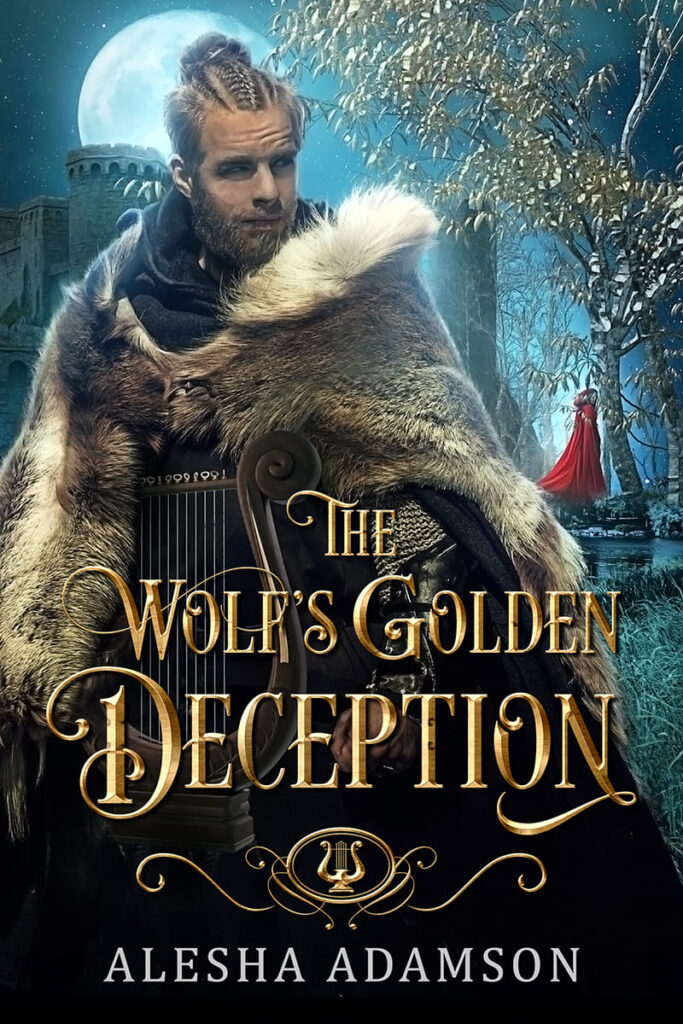
I have always loved big families and grew up with two older sisters and a little brother. Both of my parents were from larger families, so I also had a myriad of cousins and aunts and uncles. I was excited to kick off my series with The Dark King and the Eternal Dance—a retelling of “Twelve Dancing Princesses” and a family of twelve sisters.
At first, I was intimidated by so many sisters and wondered how I was going to make them all feel individual without overwhelming or confusing the reader. As I was naming them, I decided to base their personalities off their names. The sisters quickly began to take shape after that, and a few began to stand out. I drew from my own relationships with my siblings and cousins as well as my experience working at a daycare to create their relationships, mingled with a bit of rivalry and chaos.
It wasn’t long before Mira began emerging as a key player, leading me to plan her book which would become my second book, The Wolf’s Golden Deception. It was quickly apparent that Rayna and Mira’s actions were intricately connected to each other. Mira’s “lost leaf” leads Rayna to make a pivotal decision in her book to help two different sisters: her eldest whom she is trying to save from an unwanted engagement and her little sister Mira who has suddenly found herself in an uncomfortable situation that might leave her stranded at the magical dances.
I have always loved big families and grew up with two older sisters and a little brother. Both of my parents were from larger families, so I also had a myriad of cousins and aunts and uncles. I was excited to kick off my series with The Dark King and the Eternal Dance—a retelling of “Twelve Dancing Princesses” and a family of twelve sisters.
At first, I was intimidated by so many sisters and wondered how I was going to make them all feel individual without overwhelming or confusing the reader. As I was naming them, I decided to base their personalities off their names. The sisters quickly began to take shape after that, and a few began to stand out. I drew from my own relationships with my siblings and cousins as well as my experience working at a daycare to create their relationships, mingled with a bit of rivalry and chaos.
It wasn’t long before Mira began emerging as a key player, leading me to plan her book which would become my second book, The Wolf’s Golden Deception. It was quickly apparent that Rayna and Mira’s actions were intricately connected to each other. Mira’s “lost leaf” leads Rayna to make a pivotal decision in her book to help two different sisters: her eldest whom she is trying to save from an unwanted engagement and her little sister Mira who has suddenly found herself in an uncomfortable situation that might leave her stranded at the magical dances.
We continue to see these strong family ties in Mira’s book, The Wolf’s Golden Deception. Her sisters and even her servants are supportive of her as she mourns Lord Rafe who she had grown to love deeply but hasn’t seen since the end of the dances. Then when various truths come out, they all band together to protect their sister, even her new brother-in-law throws around his weight to protect her.
Rayna and Drake invite her to come stay with them while she recovers from both her physical injury and her emotional pains. Her sisters refuse to let her go alone. Nora and Arianna, her triplets, accompany her and stay with her, loving her and supporting her while she is healing, making sure she gets out of bed and does the things she loves. And I cannot forget their older sister Marion. She may put on a gruff and grumpy persona, but she loves her sisters deeply, even if she is annoyed with them. She will do nearly anything for them, including visit the kingdom with the most annoying man.
Her sisters continue to be there for her even amidst some of her darkest moments, encouraging her and supporting her, while being fiercely protective of her, though a little misled at times.
I wanted to have a family full of love and support along with a dash of crazy and disfunction, just like many “happy families.”
Alesha Adamson
I had such a delightful time with these sisters and creating this family. They are far from perfect, but I wanted to have a family full of love and support along with a dash of crazy and disfunction, just like many “happy families.” I do have characters with unideal family situations, but I wanted this group of girls to have a more loving family situation. I understand that people come from all kinds of family backgrounds, and I believe that it is important to see healthier families as well as those dysfunctional ones.
Indeed, these sisters have such strong ties that I had a difficult time keeping most of them from dashing off to save their sisters at various points in their stories. Of course, some of them absolutely refused to listen to me so I either had to allow them to come along for the ride or throw up various roadblocks to keep them where they were supposed to be—ha ha.
I look forward to spending more time with these delightful sisters as I continue to write the Ever After in Vilastoria series.
What drew you to combining fairy tales with Greek and Roman mythology?
My friend Julene actually inspired the mythology aspect. We have been friends and writing buddies for several years now. One day as I was talking through my plot for The Dark King and the Eternal Dance with her, I mentioned how I wanted to have a person ferry them across the river. She jumped in and asked if it was like Chiron in Hades and Persephone. My gut reaction was no, this was “Twelve Dancing Princesses.” But then I got thinking about it, the more I thought about it the more I could see exactly what she was talking about. A few days later I texted her back to tell her she was a genius, because it would indeed be perfect for my book. My original idea fit so perfectly with the myth it was crazy.
Around that time, I had already begun forming an idea for the whole series. There were the two other initial ideas I’d had when I joined the Villain’s Ever After anthology. Once I decided to use Hades and Persephone, I knew that I wanted to mix mythology and fairytales for my whole series. I began researching Greek mythology along with fairytales. Eventually I decided to use Grimm and Hans Christian Andersen fairytales along with Greek, Roman, and Norse Mythology. Some book ideas I had were inspired by a specific fairytale while others were inspired by a myth.
What’s your favorite fairytale, and your favorite retelling of it (movie or book)?
When I was in college, I had a roommate introduce me to the fairytale “Twelve Dancing Princesses.” Shortly thereafter I read the book Princess of the Midnight Ball by Jessica Day George. It was my first real exposure to that fairytale. I was in love. Then by coincidence I read Wildwood Dancing by Juliet Marillier, another absolutely delightful retelling of the fairytale.
Ever since, “Twelve Dancing Princesses” has been an all-time favorite fairytale with these two books as my favorite adaptations. Actually, I had been pondering ideas for writing a “Twelve Dancing Princess” mashup around the time Camille told me about the anthology which is part of the reason I quickly got an idea and decided that “Twelve Dancing Princesses” was the fairytale retelling I wanted to do.
Some of my other favorites are Beauty and the Beast and Cinderella, particularly the movie Ever After.
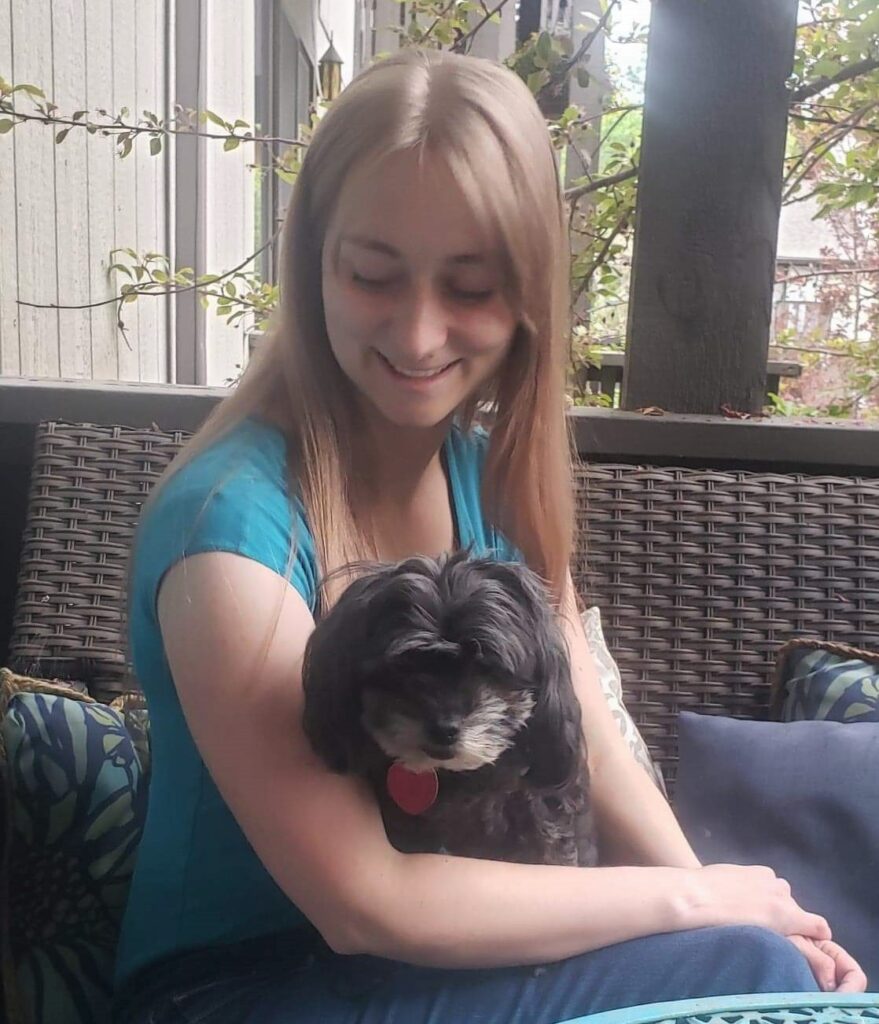
How does having dyslexia affect your writing? Do you have any tips for other writers who might have similar struggles?
It is interesting that you ask this question because my friend asked me a similar question the other day which got me thinking about this. Dyslexia is commonly misunderstood, so I’d like to start by clarifying a few things.
First off, it has nothing to do with vision, hearing or intelligence. I was always taught that it was a problem with the way the neural pathways in my brain connected. According to the Mayo Clinic, “Dyslexia is a learning disorder that involves difficulty reading due to problems identifying speech sounds and learning how they relate to letters and words (decoding). Also called a reading disability, dyslexia is a result of individual differences in areas of the brain that process language.”
Just like most learning disabilities, dyslexia is not something I will ever grow out of, nor is it something that I can work my way toward overcoming. It is, however, something I have learned to deal with and work around. I feel extremely blessed to have had a mother who was willing to get me the help I needed to learn to read. I went through a program that used a series of brain gym activities to help connect those neural pathways and enhance learning. These activities will help many people who also struggle with learning disabilities or who are neurodivergent.
Just like most learning disabilities, dyslexia is not something I will ever grow out of, nor is it something that I can work my way toward overcoming. It is, however, something I have learned to deal with and work around.
Alesha Adamson
A basic example of this is marching in place and hitting your right knee with your left hand. I did things like juggling with handkerchiefs and hitting a ball that was hanging from the ceiling while spelling a word on the wall, etc. I won’t go into depth, but if you or someone you know is struggling, I strongly suggest looking into brain gym activities.
How does this affect my writing? Honestly, I’ve become so adept at reading and typing that I hardly think about it. However, it does still affect things.
I have always been a slow typist and even now that I’m faster I still frequently type the letters in a word or even whole words all mixed up, especially when I get going fast. It is rather annoying because even though I think the words or letters are in the correct order, they still somehow come out of my fingers all mixed up. This means I frequently find myself typing and retyping the same sentence several times.
Spelling is also something I find exceedingly difficult. I always joke that I can’t spell my vocabulary. Some people have asked if I can’t just memorize it, but that is just the problem, I either misremember it or I literally cannot recall which vowel goes where, or which blended sound is used, etc. Yes, there have been some words that I have memorized including most of the words you use every day but there are some words I just have to accept that I’m always going to spell wrong, some of which are common everyday words as well as more complicated words. This is one of the many reasons I’m thankful for spell check and editors.
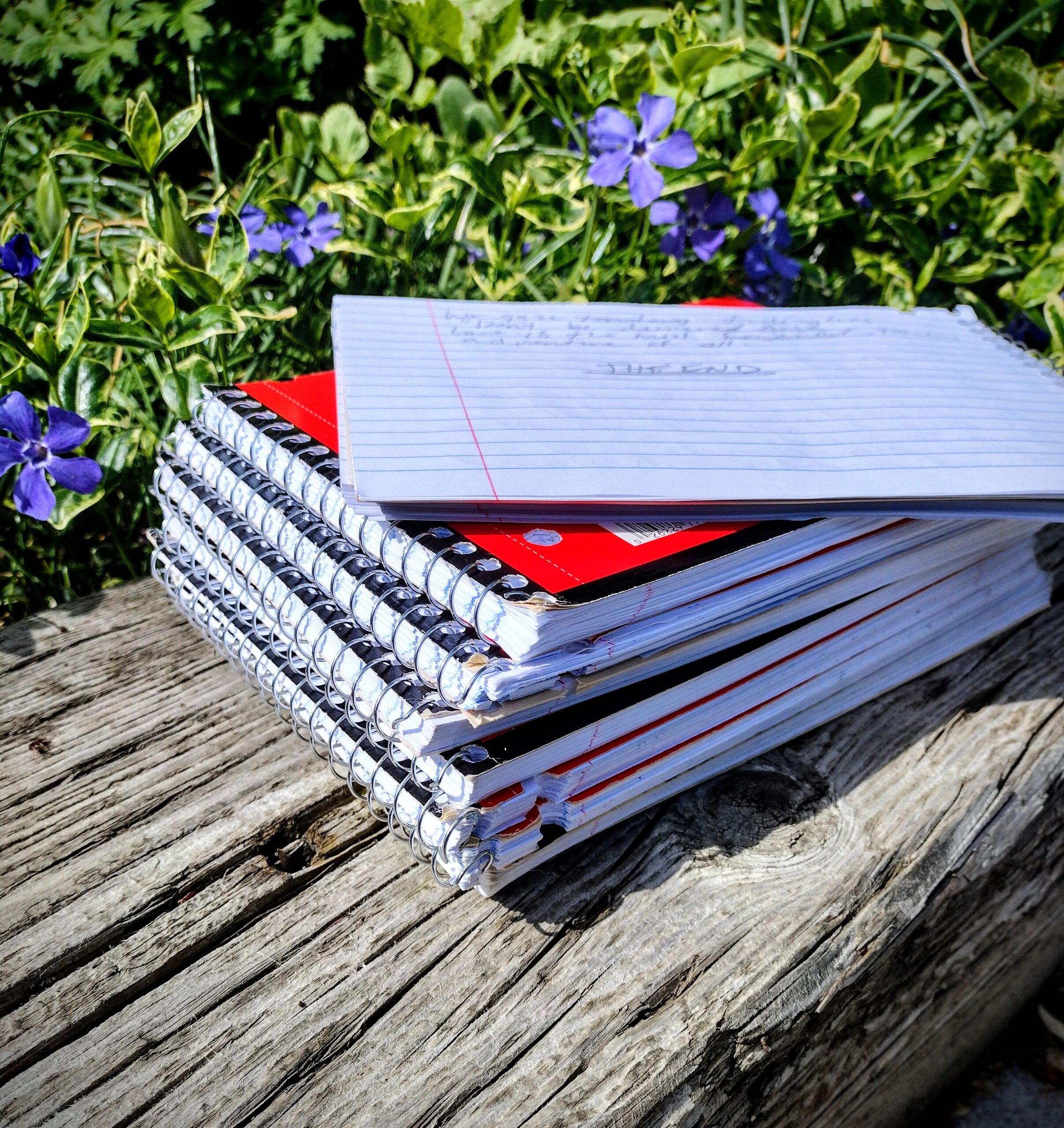
Perhaps this is the reason I love to write my rough draft in my notebook. I don’t get slowed down by my atrocious spelling or grammar. Also, I have a tendency to completely lose words when speaking or writing. I used to think that this was just one of my oddities, however I recently discovered that this is something that people with dyslexia also struggle with. Many people tend to forget words now and then; however, this happens to me with astounding frequency. I’m not forgetting large words or things you don’t frequently talk about; I forget words that you use every single day. Mid-sentence the word will completely leave me, and I have to try to figure out how to move forward without it. Thankfully, my friends and family have learned to understand me. When I write in my notebook, I just write the best word or description I can think of and move on. It isn’t a big deal because I’ll come back and rewrite it. Hopefully the word I couldn’t think of the first-time round will be obvious to me the second.
For those of you with learning disabilities who are also hoping to write a book, first of all I applaud you. This means that you have not only come to a point where reading doesn’t feel like a trial and you feel ready to toss the offending book at the next person who tells you that it is easy, but you have also learned to love the amazing world that can be found through the written word. Next, I want to encourage anyone who wants to become an author. If you are passionate about it and seriously want to make it happen, don’t let anything or anyone stand in your way from accomplishing your dream, especially not a learning disability.
Just as you discovered the joy that can be found in reading despite reading being much more difficult for you to learn than the average person, you can find joy and success in writing. I’ve found that there are four main things you need to write a novel: writing, enthusiasm, direction, and a belief that it is possible. Though for those hoping to publish I’d also add waiting to edit, in any form, until your rough draft is complete. Also just like with reading, the more you do it, the easier it becomes.
There are many books and techniques that you can learn; however, understand that what works for most people might not work for you. Don’t be afraid to try new techniques to discover what works best. Some people have found great success in dictation—speaking their rough draft out loud using speech to text programs. Maybe you are like me and need the freedom to write messy in a notebook, so you can write faster without the stress of spelling and grammar errors. Maybe you just need to turn off spell check until your manuscript is complete, etc.
If you are passionate about it and seriously want to make it happen, don’t let anything or anyone stand in your way from accomplishing your dream, especially not a learning disability.
Alesha Adamson
I’ve written two blog posts about writing, both of which may be helpful to any aspiring authors. My favorite being “Alesha’s Secret Sauce: Recipe for a Rough Draft” which you can find on my website on my blog: The Accidental Author.
If you truly want to make it happen, I believe that you can find a way, but you must do something to work toward your goal. (For all my aspiring authors—you can begin by being a person who writes.) To those of you who believe in God or a higher power, I also believe that with His help, seemingly impossible things can be possible. I testify that He will help qualify you for all the things He has asked you to do.
What do you want readers to take from your books?
I hope readers primarily enjoy my books while having all the feels: laughter, tears, anticipation, swoony butterflies etc. But I also hope that seeing the characters overcome their own struggles will help encourage and inspire readers.
I want to celebrate diversity and normalize disabilities. While these things affect who we are, they are not our whole identity. We are so much more than what we look like or our ability levels. This is probably one of the reasons I love Beauty and the Beast. Because traditionally there is someone who doesn’t look like the expected on the outside, but it is discovered that they are more than their looks or reputation.
I want to celebrate diversity and normalize disabilities. While these things affect who we are, they are not our whole identity. We are so much more than what we look like or our ability levels.
Alesha Adamson
What fairytale do you really want to retell but haven’t yet?
All of them. Lol. But really, I have been so wanting to write “The Little Mermaid” after coming up with some unique ideas for my mermaids in Vilastoria. I may just have to write a whole series with just mermaids. However, I currently only have one specific idea.
I’m also super excited about my Cinderella idea and the Myth I’m going to mesh it with. Especially since Cinderella is a retelling that has been told so many times that I often get bored with retellings. I’m looking forward to doing it in a completely new way.
Finally, while researching retellings, I stumbled upon one I’d never heard before called “The Ice Maiden” by Hans Christian Andersen. It is somewhat reminiscent of “The Snow Queen” and you cannot convince me that the fairytale wasn’t inspired by the famous singer Jenny Lind, same as “The Snow Queen.” While I originally wanted to stick with familiar fairy tales, I’m so excited to write a fairytale based on “The Ice Maiden.”
You have some great lists of fairy tales by tropes on your website. What are your favorite tropes and why?
I enjoy reading a variety of tropes, but I definitely have a few go-to tropes that I feel like I can frequently count on.
One of my favorite romance tropes is marriage of convenience or fake dating. I love watching the couple choose to fall in love and seeing all the awkward and close situations they inevitably get into. Especially the one bed trope. Usually, it is a situation in which they do not want to be close together but are forced to be. I adore seeing what happens, especially unintentional cuddling.
Which leads me to another favorite, forced proximity. Tossing two characters together in a scenario where they are forced to remain close is always delightful. The closer the better. This often leads to feelings and banter, not to mention accidental touching.
Speaking of banter, it is especially prevalent and delightful in an enemies to lovers romance. The banter is literally my favorite thing in a book! If there is no banter of any kind, I may just get bored and abandon the book. Because no matter what kind of book I’m reading there must be humor or something that makes me laugh. I also love how the characters come to see each other in a different light in an enemies to lovers romance.
When you’re not writing, you are…?
When I’m not writing you can find me working at a local library as an assistant librarian. I enjoy helping patrons find books to enjoy, putting together programs, decorating the library and more. I’m also an artist. I did ceramics in high school and college but now mostly sculpt with wire. I make wire trees around semi-precious stones, animals and little wire fairies. I also make jewelry and do various crafts. I get obsessed with different crafts at different times. And of course, reading. I can almost always be found with a physical book or one on my phone or device.
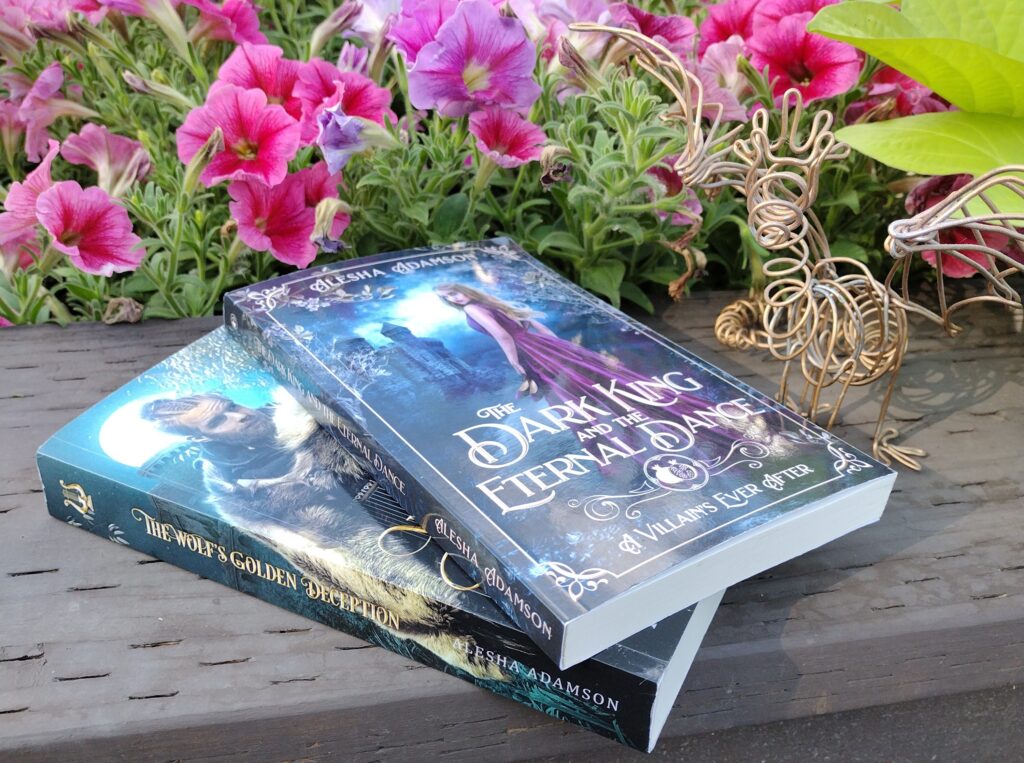
What can readers expect next from you?
I’m currently working on finishing book three in my Ever After in Vilastoria series, Arianna and the Maze of Monsters, a reverse retelling of “Princess and the Pea” meshed with “The Maze and the Minotaur.” Arianna has been a delightfully strong and adventurous character to write. I’m so looking forward to using the ultimate forced proximality as they will essentially be bound together with magic. I’m also looking forward to continuing to play with the villain being the hero of the story.
I have several books planned for my Ever After in Vilastoria series, and for all those wondering, yes, I am planning a book for Marion and Kyron.
Eventually I would like to come back to my original YA fantasy story and finish what will most likely be a trilogy. I also have some plans for a few contemporary romances. But for now, I’m planning to focus on my fairytale romance series.
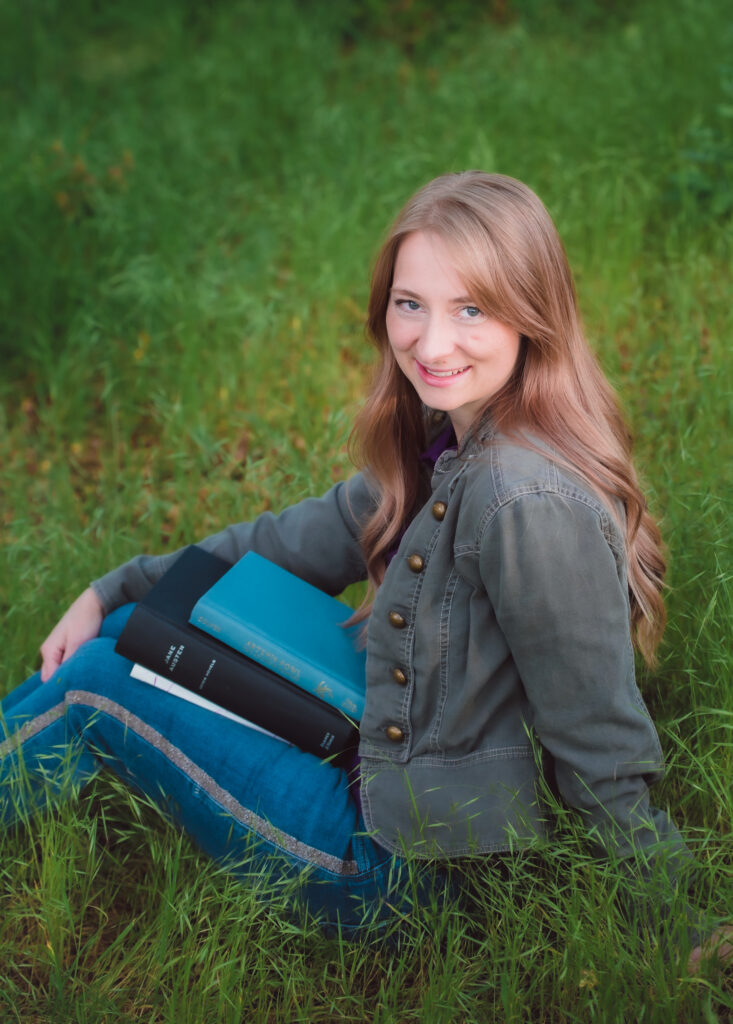
Author Bio:
Contrary to what hundreds of authors have experienced, Alesha did not love reading from an early age. Battling dyslexia, she mostly avoided the written word, instead spending hours and hours creating her own stories with dolls, stuffed animals, or even beaded lizards. Copying movies and tv would not do, she insisted upon creating her own stories usually involving romance and insurmountable odds. In the end good would prevail and everyone would receive their happily-ever-after.
Then, with the dedicated help of family and loved ones, she discovered that books were not simply letters on a page, they were amazing stories with romance, magic, adventure and so much more. It wasn’t long before she was hooked, then—almost accidentally—found herself writing her very own stories.
Once she started creating stories, she couldn’t stop. The ideas kept flowing and she is excited to continue writing more fairytales, adventures, fantasies and especially romances all with their own happily-ever-after.
Find out more about Alesha:
aleshaadamson.com https://www.facebook.com/AleshaAdamsonAuthor https://www.instagram.com/aleshaadamsonauthor https://www.bookbub.com/profile/alesha-adamson
https://www.goodreads.com/author/show/21533737.Alesha_Adamson
https://www.amazon.com/Alesha-Adamson/e/B0957Y2WQP/
(Image credit: Tiny Details Photography)
